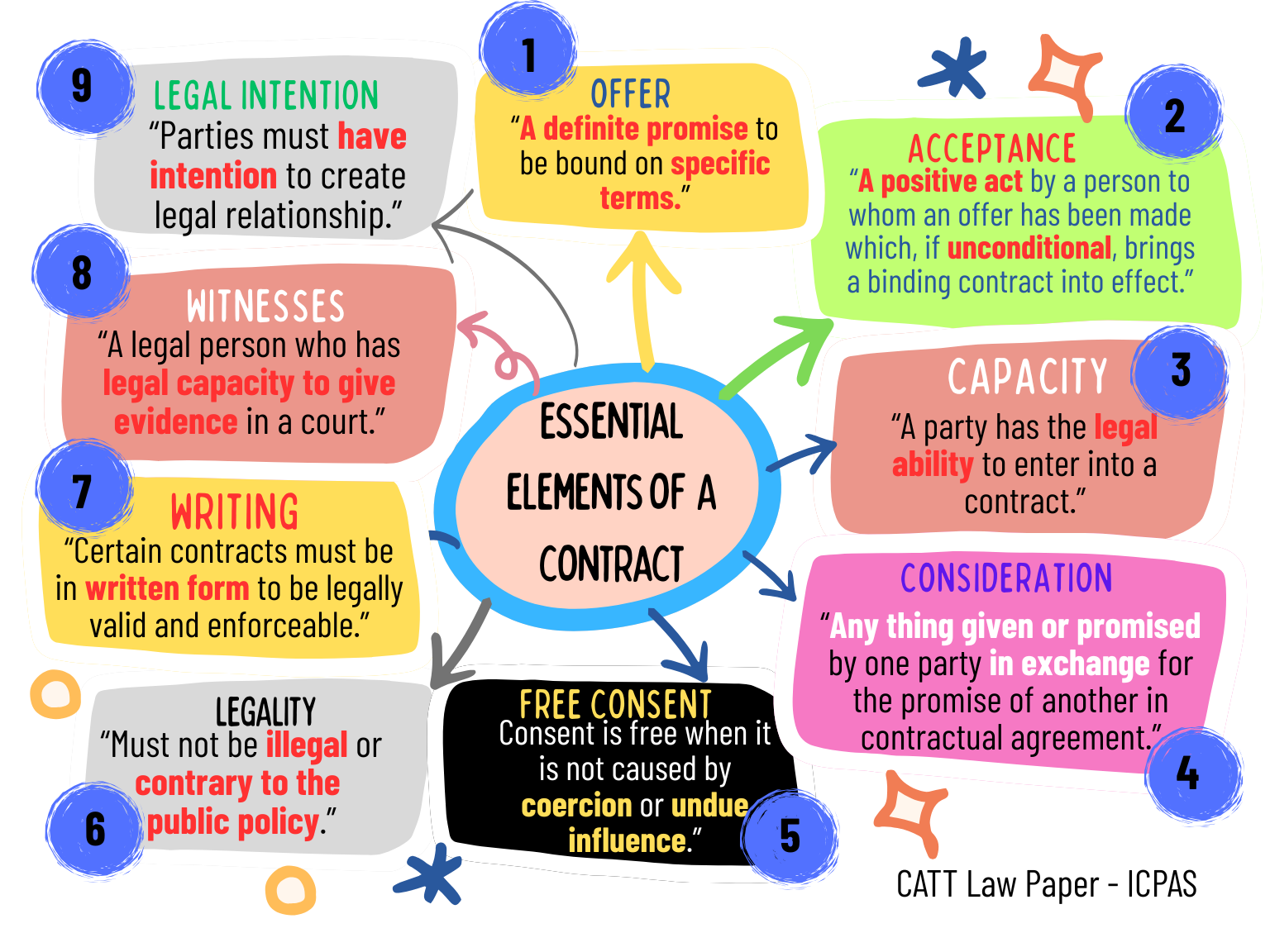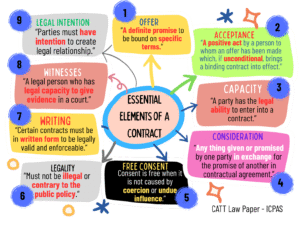ESSENTIAL ELEMENTS OF A CONTRACT
June 15, 2025
Lessons

In the study of contract law, understanding the fundamental components that constitute a valid and enforceable agreement (a contract) is crucial. A contract is not merely a mutual promise between parties; rather, it must satisfy specific legal requirements (Essential Elements) to acquire binding force under the law.
For an agreement to qualify as a valid contract, it must incorporate the following essential elements:
- Offer – A clear and definite proposal made by one party to another.
- Acceptance – The unconditional agreement to the terms of the offer.
- Capacity – The legal ability of the parties to enter into a contractual relationship.
- Legality – The contract’s subject matter must be lawful.
- Consideration – Something of value exchanged between the parties.
- Free Consent – Genuine consent of the parties, free from coercion and undue influence.
- Witnesses – In certain jurisdictions or under specific circumstances, contracts may require attestation by witnesses to be valid.
- Intention to Create Legal Relations – A clear intention by both parties to enter into a legally binding agreement.
- Writing Requirement – While many contracts may be oral, certain types must be in writing to be legally enforceable, as prescribed by statute or common law.
